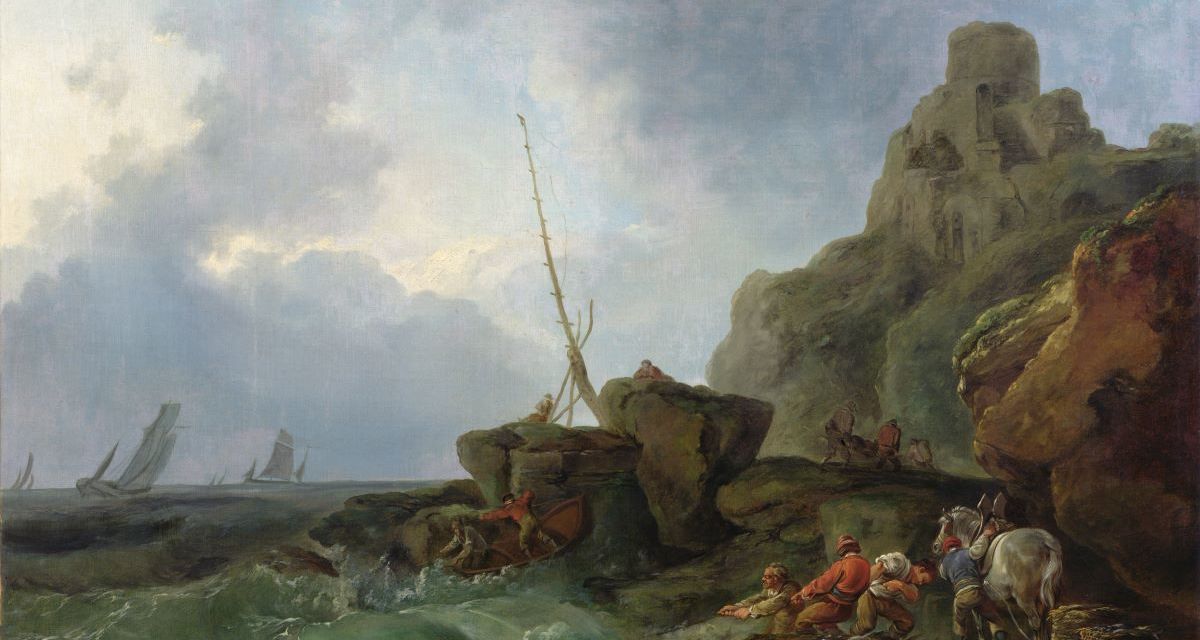Name: The Wreckers
Composer: Dame Ethel Smyth
Librettist: Henry Brewster
First performed: Neues Theater, Leipzig, 11 November 1906
In one sentence: love, lies and betrayal in an 18th century fishing village that partakes in the highly illegal practice of luring ships onto the rocks so they can be pillaged.
Famous characters
Despite being championed by Thomas Beecham, conductor and founder of the London Philharmonic, The Wreckers had a difficult route to performance. Sexism likely played a large part in this. Smyth’s work was met with mixed reviews, with some critics describing it as “too masculine” for a “lady composer”.
Today it is only occasionally performed, although a recent production by Glyndebourne helped to right this wrong.
However, the upshot of this is that the opera is little known and only aficionados are likely to recognise the characters. The action revolves around lay preacher Pascoe, his much younger wife Thirza and her lover Mark, a young fisherman.
English mezzo-soprano Anne-Marie Owens and English tenor Justin Lavender sang the roles of Thirza and Mark, respectively, in a semi-staged performance at the 1994 BBC Proms.
Music you might recognise
Again, the music is little known to a general audience. This is a shame because Smyth was an accomplished composer and musician, with The Wreckers her most impressive work.
However, music from the opera can be found on YouTube (and indeed the full length opera, if you have time to check it out). In this recording, Portuguese conductor Joana Carneiro leads the Royal Stockholm Philharmonic Orchestra in a performance of the opera’s Overture. It was recorded live on October 11, 2018 at a concert featuring all women composers.
Synopsis
Set in a Cornish fishing village in the late 18th century, the action opens on a Sunday, with the villagers – the wreckers of the title – drinking at the local inn before going to chapel. Life is harsh and precarious and the villagers are reliant on salvage taken from ships wrecked on the cliffs.
However, they have started to deliberately draw the ships onto the cliffs, looting the ship for any items of worth.
Pascoe, village leader and lay preacher, chastises the villagers for drinking on a Sunday, claiming that the lack of ships to wreck is God’s punishment for their licentiousness. However, Avis, the young daughter of lighthouse keeper Lawrence, offers another explanation. Her father believes that someone is lighting beacons to warn the ships away.
Elsewhere, Mark, a young fisherman, is singing of his love for Thirza, the young wife of Pascoe. Mark has previously courted Avis and she overhears his declarations of love for another. She is furious when Thirza appears and makes it clear that Mark’s feelings are returned.
Avis returns to the village and claims that Pascoe is responsible for lighting the beacons, much to the villagers’ shock. A storm is brewing and the villagers ready themselves for a night of rich pickings.
The true culprit is Mark, and later that evening, he is on the cliffs getting ready to light a fire. Thirza arrives on the scene to warn him that the wreckers are coming and not to light the beacon. Mark begs her to run away with him; she agrees and together they light the fire and escape.
However, Pascoe has seen them. In his anger he collapses on the beach, close to the fire, so when the other villagers arrive it seems that Avis’s accusations were true. Pascoe is tried as a traitor and sentenced to death.
Mark and Thirza return and confess to lighting the fires. They are condemned to die in a sea cave, chained up as the rising tide fills the cave.
Image
Ethyl Smyth’s opera The Wreckers was inspired by 19th century tales of Cornish villages where, on stormy nights, the inhabitants lured passing sailing ships onto the rocks (Philip James de Loutherbourg, public domain, via Wikimedia Commons).

